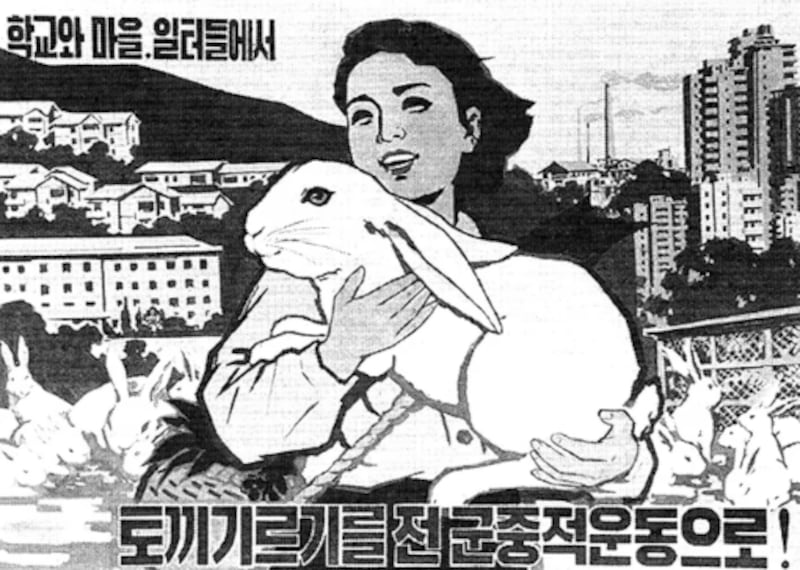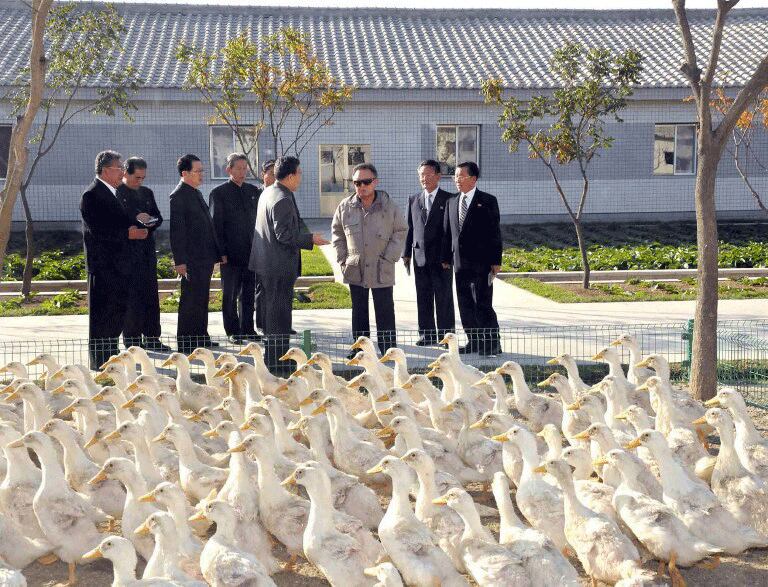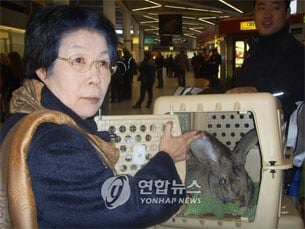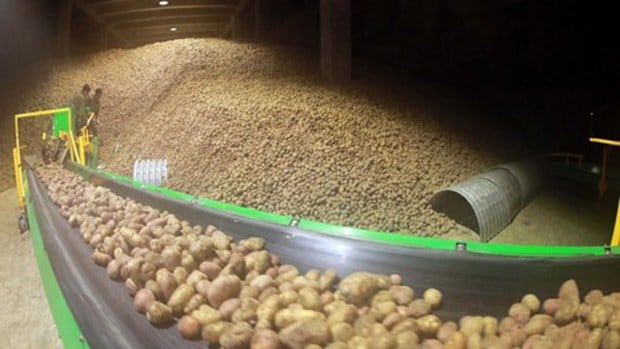Authorities in North Korea have ordered schools across the country to raise more rabbits to supply and feed its army or face punishment, sources told Radio Free Asia.
Ahead of the 93rd founding anniversary of North Korea’s armed forces on Friday authorities have launched inspections of rabbit breeding farms in schools across the communist country, demanding they increase the livestock supplied to local army units.
Reeling from persistent food shortages since the mid-1990s, the North Korean regime has been actively promoting the raising of “grass-fed” livestock like rabbits and goats as sources of meat.
In particular, it has emphasized the breeding of bunnies, as they provide both meat and high-quality fur, with authorities establishing rabbit breeding associations and farms in cities and counties across the country and making it a key state initiative.
The inspections of school rabbit pens – that began last week for the first time in schools – are being carried out by the provincial-level youth league committee leaders under orders from the provincial party, said a source based in South Pyongan province.
In North Korea, the children’s union, which students aged 9-13 are required to join, and the youth league, which include those in the 14-18 age group, are mass political organizations that educate young people in socialist ideology and loyalty.
The instructors in charge of the youth league at each school are tasked with meeting the breeding targets.
“While it’s been common for the authorities to emphasize expanding rabbit farms every year to supply more meat and leather to the military, this is the first time they are actually inspecting schools,” the source told Radio Free Asia. He requested anonymity for safety reasons.
These inspections focus on the scale of the farms and the number of bunnies – both breeding rabbits and their young offspring, he said.
Youth league instructors at schools that fail to meet the target of at least 1,000 rabbits are being warned or subjected to punishment, including expulsion from the committee or dismissal from their positions, he said.
“Responsibility falls on the youth league instructors because the rabbit farm management and feeding activities are carried out through organized teams made up of children’s union and youth league members,” he said.
“The breeding rabbits tallied during inspections — excluding seed stock — are to be sent to local military units as support supplies by April 25,” he added.

Despite the challenges of running these farms, authorities have ordered all schools in Gowon county to provide 300 breeding rabbits each to feed the military and to do so by April 25, said a source based in South Hamgyong province, in North Korea’s northeastern corner.
“To mark the (army’s founding) anniversary, inspections of school rabbit farms began in Gowon County alongside support efforts for the military,” he said.
“Some teachers are expressing frustration,” the source noted. “They’re saying schools are meant to be places for students to learn — not military supply bases.”
To feed the rabbits in breeding farms at schools, teenage students are forced to wander the fields to source grass as they are not allowed to collect clover in the mountains due to forest protection rules, he said.
Since the 1970s, North Korea has required middle and high school students to raise rabbits and offer them to the state, while farmers must fulfill the country’s annual meat purchase quotas.
Many will never taste the meat they produce as most is submitted to the authorities, with the remainder consumed or sold by corrupt officials, previous reports have said.
In 2010, several international charities raised money to send giant rabbits to North Korea to breed as a cheap source of protein, but the animals vanished amid speculation that they had been quickly seized and eaten by officials.
Translated by Jaewoo Park. Edited by Tenzin Pema and Mat Pennington




